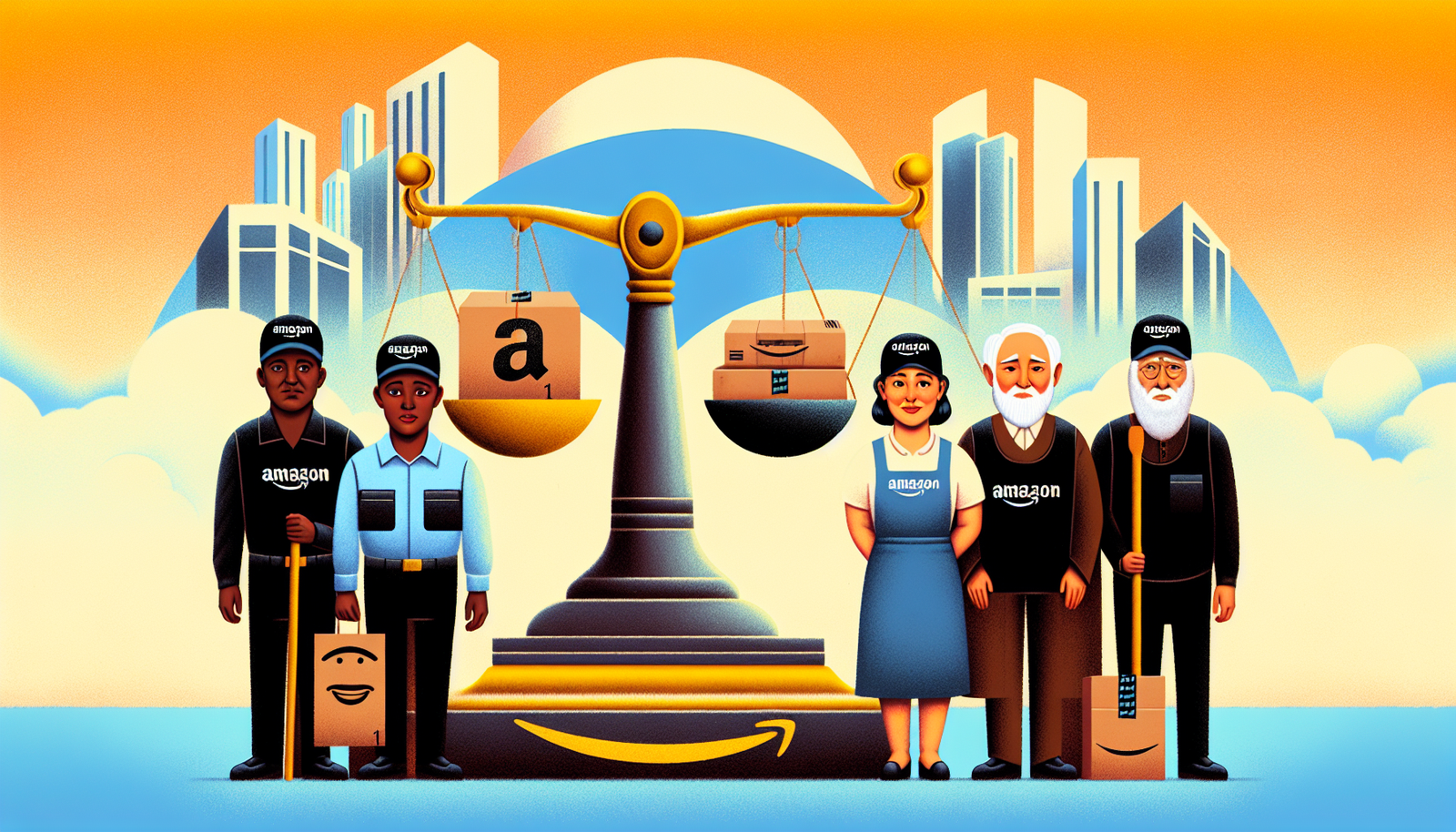Amazon Faces Labor Dispute Over Union Bargaining Practices
The National Labor Relations Board (NLRB) has filed charges against Amazon, alleging that the company has unlawfully refused to engage in bargaining with a union representing drivers who are voicing concerns about low wages and unsafe working conditions.
Background of the Dispute
In August, a significant development occurred when the NLRB ruled that Amazon is a joint employer of subcontracted drivers. This decision was celebrated by drivers who proudly declared, “We are Amazon workers!” However, Amazon responded downplaying this designation, claiming the union misrepresented the nature of the NLRB’s finding as only a preliminary step in a more extensive legal process.
As worker dissatisfaction has grown, the NLRB proceeded with formal charges alleging that Amazon employed a series of tactics aimed at discouraging union activities, particularly at a facility in Palmdale, California.
Allegations Against Amazon
The NLRB’s complaint asserts that Amazon has been practicing various unfair labor tactics aimed at thwarting union organizing efforts initiated by delivery drivers. Key accusations include:
- Reluctance to bargain with the Teamsters union.
- Termination of contracts with unionized drivers without proper negotiation.
- Employing intimidation tactics, such as using security personnel during unionization efforts.
Despite Amazon’s recent $2.1 billion investment to bolster driver safety and wages, the NLRB claims these gestures fell short of addressing drivers’ grievances adequately.
Union’s Perspective and Response
The Teamsters union expressed that the NLRB’s findings confirm the unjust practices at Amazon and signal an advancing battle against the company’s labor relations strategies. Teamsters General President Sean O’Brien indicated that Amazon must now approach negotiations responsibly to ensure fair working conditions and compensation for drivers.
“The NLRB’s complaint demonstrates Amazon exercises considerable control over drivers’ working conditions,” the union emphasized, which might compel Amazon to engage in negotiations with unionized contractors seeking improved conditions.
Next Steps in the Legal Process
Amazon has until October 15 to respond to the charges. The ongoing legal battle underscores the increasing scrutiny the retailer is under from unions and labor regulators alike. In March, a further hearing will unfold where evidence against Amazon will be evaluated by an administrative judge.
This situation reflects a broader trend of labor involvement at Amazon, with warehouse workers recently taking significant steps toward union recognition, fueled by dissatisfaction with wages and working conditions. As the dynamics between labor organizations and large corporations continue to evolve, the implications of these disputes could significantly reshape the landscape of labor rights within the tech and delivery sectors.

